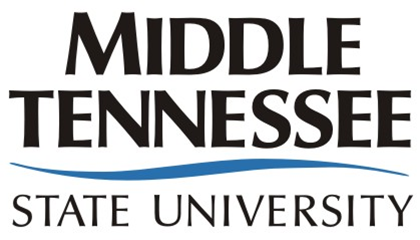Organization description
TPS-MTSU is now TPS-Southern Regional Partner. The Teaching with Primary Sources Regional program promotes the widespread, sustained and effective use of primary sources from the Library of Congress in K-12 classrooms by increasing access to the TPS program. As the TPS-Southern Regional Partner, we will join the established regional partner programs in increasing access to the Teaching with Primary Sources program by providing direct funding to projects that serve educators.
Our project is administered by the Center for Historic Preservation at Middle Tennessee State University. Established in 1984, the Center for Historic Preservation at Middle Tennessee State University has taken very seriously its mission to identify, preserve, interpret, and sensitively promote and sustain our historic environment. Through “best practices” programs and activities in academic scholarship, field work, and experiential learning, the Center continues its initial and long-standing commitment to shape the careers of historic preservation practitioners through community-based projects that enhance the quality of life in the region. To learn more about the Center, visit https://www.mtsuhistpres.org/.
Project description
In 2008, the Center for Historic Preservation (CHP) at MTSU joined the consortium and began serving Tennessee educators. TPS-MTSU seeks to link current state-focused educational initiatives to larger national themes and to emphasize the student exploration of history, science, arts, and culture through the use of primary sources available from the Library of Congress.
TPS-MTSU reaches out to all Tennessee educators: K-12 teachers as well as undergraduate and graduate students in education, faculty and administrators of collegiate departments of education, school and institutional librarians and media specialists, and educators at museums and cultural institutions and heritage organizations. TPS-MTSU offers a wide variety of workshops, institutes, webinars, and presentations. We welcome invitations to partner with school districts, universities, museums, and cultural institutions across the state.
We focus on professional development. We offer educator workshops on two primary areas: the content theme – “Expanding Citizenship: What Is an American” and a strategy theme – improving student skills level with the social studies practice skills.
We are also creating a new curriculum in FY22: the World War II Homefront in Tennessee. This curriculum begins with the impact of New Deal programs like the Tennessee Valley Authority and Civilian Conservation Corps which provided infrastructure that proved vital for the war effort in the state and nation. It explores Tennessee’s role in military operations, the role of civilians and changes in the economy, and how life changed during and immediately after the war. The curriculum incorporates place-based strategies to help students draw connections between the content and the places in their communities that connect to this era.
Beginning in 2025, our program shifted and took on the role as the TPS Southern Regional partner. This means we will join the established regional partner programs in increasing access to the Teaching with Primary Sources program by providing direct funding to projects that serve educators. School districts, universities, cultural institutions, library systems, and other educational organizations may apply for grants of up to $25,000 to incorporate TPS materials and methods into their existing education and professional development programs for pre- and in-service teachers, librarians, and other K-12 educators. Grant recipients may use TPS funding to meet a variety of programmatic needs, including delivering online or face-to-face TPS workshops; embedding TPS materials and content into broader professional development programs; or revising undergraduate or graduate course syllabi or curricula to include a TPS focus. These regional projects can run from six to twelve months. In addition to administering regional grants, we will be creating a professional development opportunities for public historians interested in exploring how to embed Library of Congress primary sources and TPS strategies into their work.
